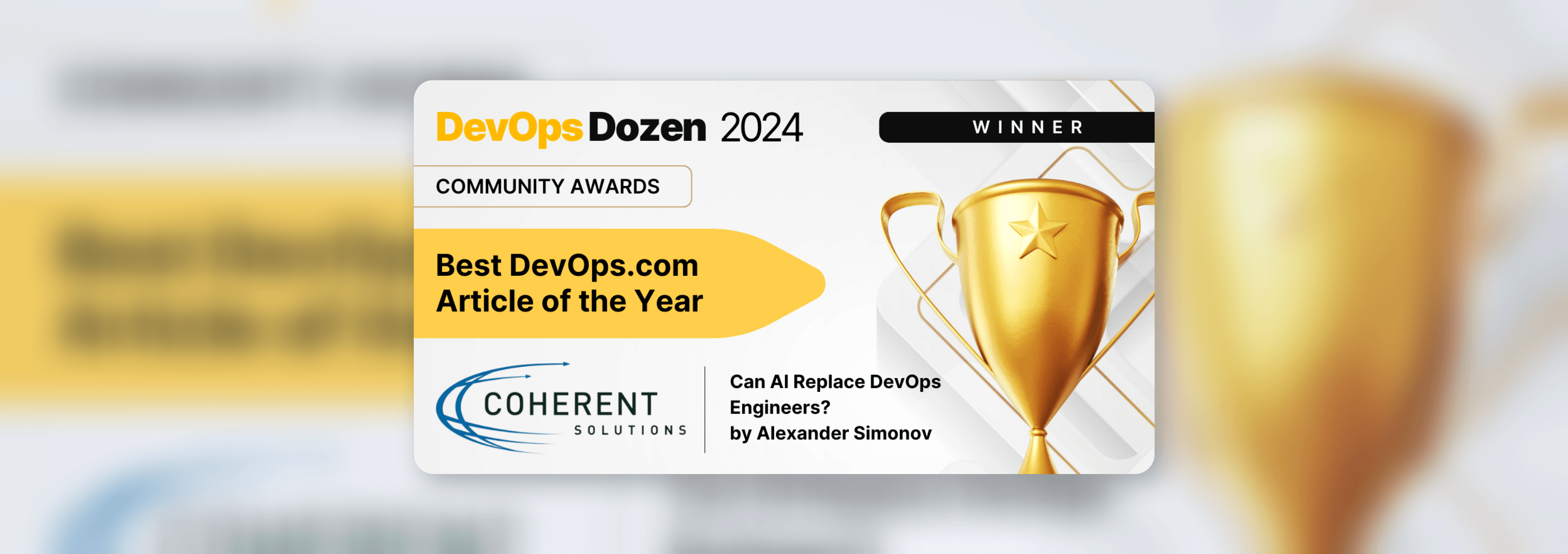Our Deputy DevOps Practice Lead, Alexander Simonov, helped explain the nuances of DevOps, SRE, and Platform Engineering for a piece by Josh Fruhlinger at InfoWorld. All three shape how organizations create real digital value and how engineers handle AI-generated input.
Modern software systems are more demanding than ever. AI’s active involvement in solution building and delivery complicates that even further. We’re talking sprawling cloud setups, microservices galore, remote teams, 24/7 user demands, and AI workloads that spike unpredictably.
On top of that, poorly planned digital initiatives add pressure to perform reliably and scale efficiently. To overcome that, what really moves the needle is choosing the right platforms, automation tools, and development approaches - whether the business goal is growth, efficiency, investor readiness, or scale. In this context, DevOps, SRE, and Platform Engineering overlap in purpose but differ in focus and execution.
DevOps as the mindset
DevOps is the cultural glue. It breaks down walls between dev and ops with CI/CD, automation, collaboration, and shared ownership. DevOps also sets the tone for faster and more frequent delivery.
SRE for engineering reliability
SRE (Site Reliability Engineering) takes the hard work of keeping systems reliable and turns it into code. It helps build reliability into every sprint, which is essential in live environments where downtime is costly.
Better infrastructure with Platform Engineering
Thanks to Platform Engineering, developers get ready-to-use tools, reusable building blocks, and clear paths to ship code faster. It eliminates friction and frees developers to focus on value, not tool setup or platform figuring.
As Alexander explains, the main difference between the three terms is that DevOps is a mindset, SRE is a practice, and Platform Engineering is a product approach.
Read the original article by Josh Fruhlinger at InfoWorld.
.png)


